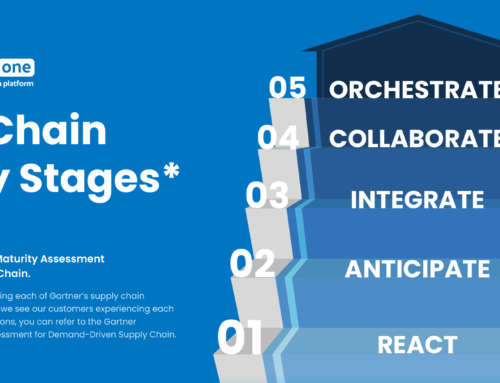ESG in Supply Chain Management: The Future of Corporate Responsibility
The importance of Environmental, Social and Governance (ESG) in supply chain management has become increasingly evident in recent years, as consumers and investors demand greater transparency and accountability from companies. ESG considerations are critical in supply chain management, as they impact everything from the products we buy to the companies we invest in. In this blog, we’ll explore why ESG is important, what it means for supply chain management, and how companies can integrate ESG into their operations.
Why ESG Matters
ESG has become a top priority for companies and consumers alike, as it impacts not only the environment and society, but also the long-term financial success of companies. In today’s global economy, companies are facing increasing pressure to consider the environmental and social impacts of their operations, and to ensure that they are conducting business in an ethical and sustainable manner.
In addition, investors are increasingly taking into account ESG factors when making investment decisions. Studies have shown that companies with strong ESG performance are more likely to outperform their peers in the long term. This is because ESG considerations can lead to greater efficiency, reduced risks, and increased stakeholder trust.
What ESG Means for Supply Chain Management
ESG considerations are particularly critical in supply chain management, as companies must assess the ESG practices of their suppliers and ensure that they are aligned with their own values and standards. This includes ensuring that suppliers are using environmentally-friendly materials and processes, treating workers fairly, and following ethical business practices.
To integrate ESG into supply chain management, companies must first assess the ESG risks and opportunities in their supply chain. This can be done through supplier audits, sustainability reporting, and stakeholder engagement. Companies should then set targets and establish metrics to track progress and identify areas for improvement.
How Companies Can Integrate ESG into Their Operations
Integrating ESG into supply chain management requires a comprehensive approach that spans the entire organization. Here are some steps companies can take to embed ESG into their operations:
- Develop a clear ESG strategy: Companies should develop a clear ESG strategy that outlines their values, goals, and commitments. This should be communicated to all stakeholders, including suppliers, customers, and investors.
- Engage suppliers: Companies should engage with their suppliers to understand their ESG practices and encourage them to adopt sustainable and ethical practices.
- Use sustainability reporting: Companies should use sustainability reporting to track and communicate their ESG performance to stakeholders. This can be done through annual sustainability reports, sustainability scores, or other metrics.
- Establish partnerships: Companies should establish partnerships with other organizations to drive positive change in their supply chain. This can include partnering with NGOs, industry groups, or governments to drive ESG initiatives.
- Continuously improve: Companies should continuously improve their ESG performance by setting targets, tracking progress, and making changes as necessary.
In conclusion, ESG in supply chain management is critical for the future of corporate responsibility. By integrating ESG into their operations, companies can improve their performance, reduce risks, and build trust with their stakeholders. The future of business depends on ESG, and companies that embrace it will be well positioned for success in the years to come.
A digital supply chain can help companies integrate ESG considerations into their operations in several ways:
- Increased transparency: Digital supply chains enable companies to track and monitor their ESG performance in real-time, providing greater transparency and accountability. This can help companies identify ESG risks and opportunities, and make informed decisions to drive positive change.
- Improved supplier engagement: Digital supply chain management tools enable companies to easily communicate and collaborate with their suppliers, sharing ESG metrics and goals, and encouraging them to adopt sustainable practices.
- Better data management: Digital supply chain management platforms provide a centralized repository for ESG data, allowing companies to easily track and analyze their ESG performance and make data-driven decisions.
- Increased efficiency: Digital supply chains can help companies streamline their operations, reducing waste and emissions, and improving the overall sustainability of their operations.
- Stakeholder engagement: Digital supply chain management tools can help companies communicate their ESG performance to stakeholders, building trust and demonstrating their commitment to sustainability.
In short, a digital supply chain can help companies to better integrate ESG considerations into their operations, drive positive change, and build a more sustainable and responsible future.




